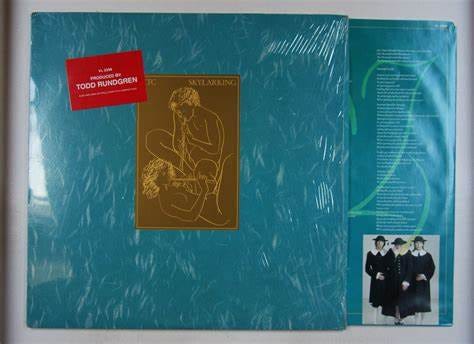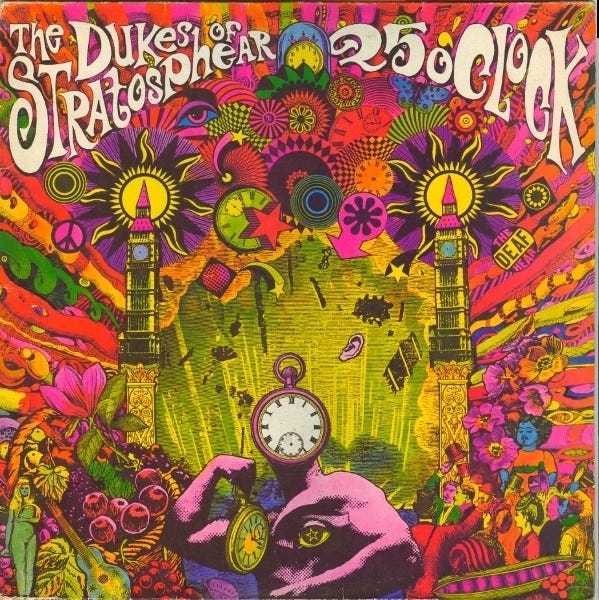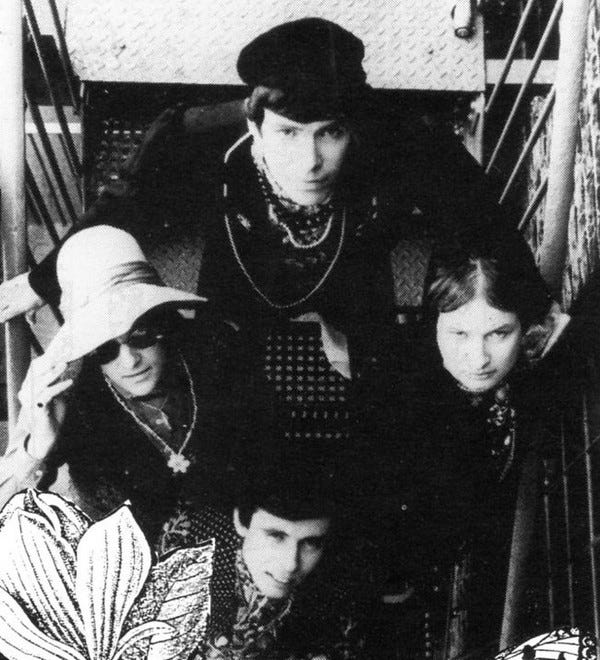Audio Autopsy, 1986: XTC "Season Cycle" from Skylarking LP, Produced by Todd Rundgren
One song from XTC's 1986 Skylarking LP has fingers that reach not only deep into the music of the 1960s, but back again to a trend-setting band that touched the '90s! Follow the thread!
Skylarking (shown above), was the ninth studio album by innovative and melodic English rockers, XTC, and was released in late October 1986 on Geffen Records (U.S., Virgin in UK).
Produced by Todd Rundgren, it’s a loose concept album about a nonspecific cycle, such as a day, a year, the seasons, or a life, at least according to Rolling Stone, who, in 1989, named it one of the Top 100 albums of the 1980s.
I was on them and their previous album, 25 O’Clock, by The Dukes of Stratosphear (and yes, they spelled it just that cutely), mainly because of this pseudonymous 1985 attempt to re-create the writing and even the recording techniques of 1967 and ‘68! There were to be no more than two takes for each track, and vintage equipment only!
In fact, it was such a creative love letter in vinyl to “The Summer of Love,” it was actually publicized as a long-lost collection of recordings by a late 1960s group you weren’t supposed to notice wasn’t real (think Spinal Tap with Rickenbackers instead of Gibson Explorers—released, it should be noted, on April Fools Day 1985)!
Regardless, one still wonders how and why Virgin Records would put up with (or would want to put up with) such promotional shenanigans and headaches for a “brand new band”! One might also wonder why their follow-up to this XTC/Dukes side-hustle, Skylarking, would suddenly not be on Virgin, but on Geffen Records instead (at least in the U.S.)!
But, The Dukes of Stratosphear album was simply the next album of new tracks recorded by Andy Partridge (masquerading as Sir John Johns, all pictured above in suitable, and pretentious-as-it-had-to-be Dukes guise), Colin Moulding (Red Curtain), and Dave Gregory (Lord Cornelius Plum) of XTC with Gregory’s brother, farmer Ian, going by E.I.E.I. Owen.
Nevertheless, as fickle as the Lords of the Charts are, upon its release in the UK (where the band routinely outpaced its sales in the U.S.), 25 O’Clock sold twice as many copies as XTC’s then-latest album, 1984’s The Big Express, even before the Dukes’ true identity was made public!
“That was a bit upsetting to think that people preferred these pretend personalities to our own personalities; they’re trying to tell us something,” Partridge told Chris Hunt in 1989.
So, of course, a Dukes “Vol. 2” was released (if not necessarily ordered) by the label in 1987, Psonic Psunspot.
Keep reading with a 7-day free trial
Subscribe to Front Row & Backstage to keep reading this post and get 7 days of free access to the full post archives.







